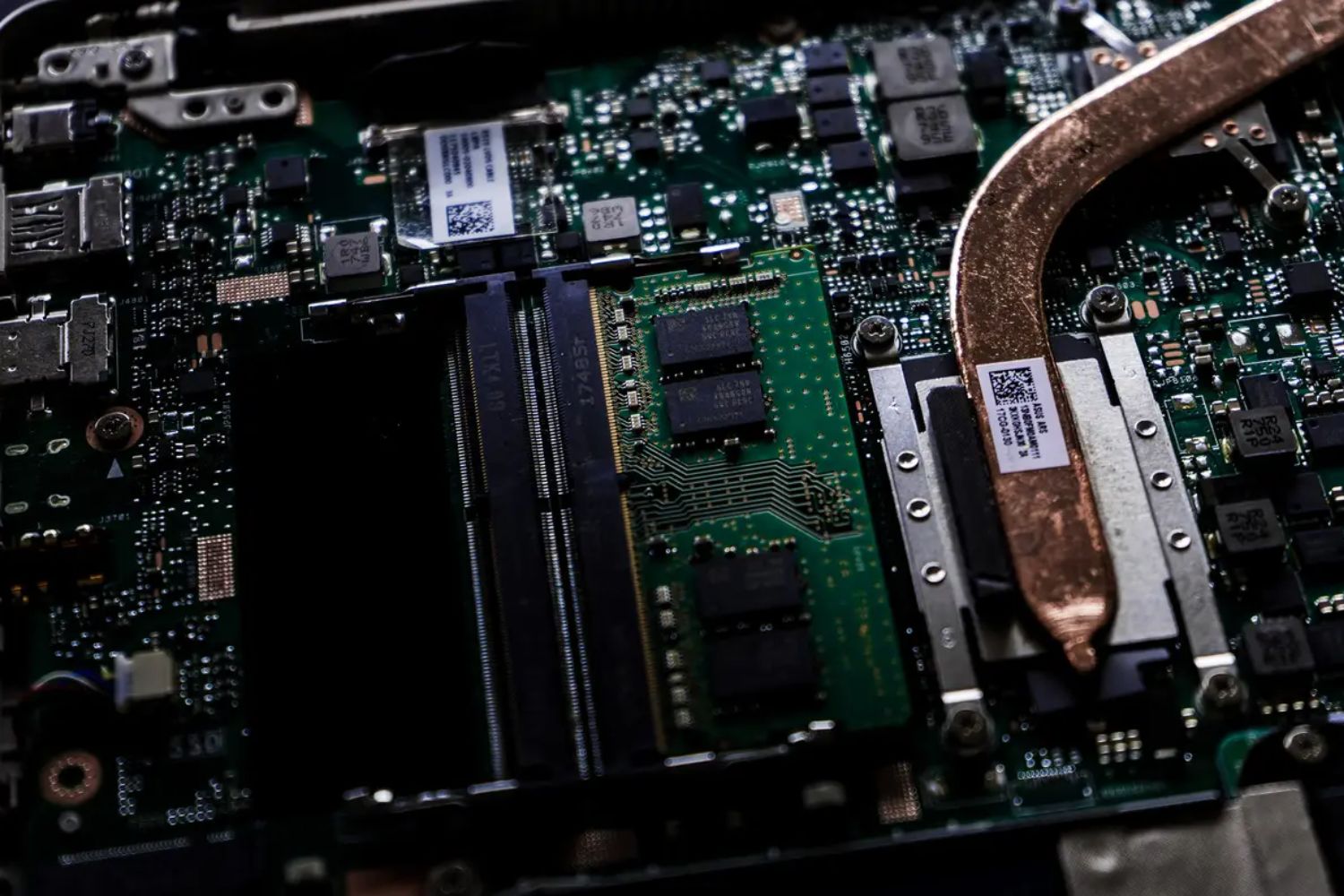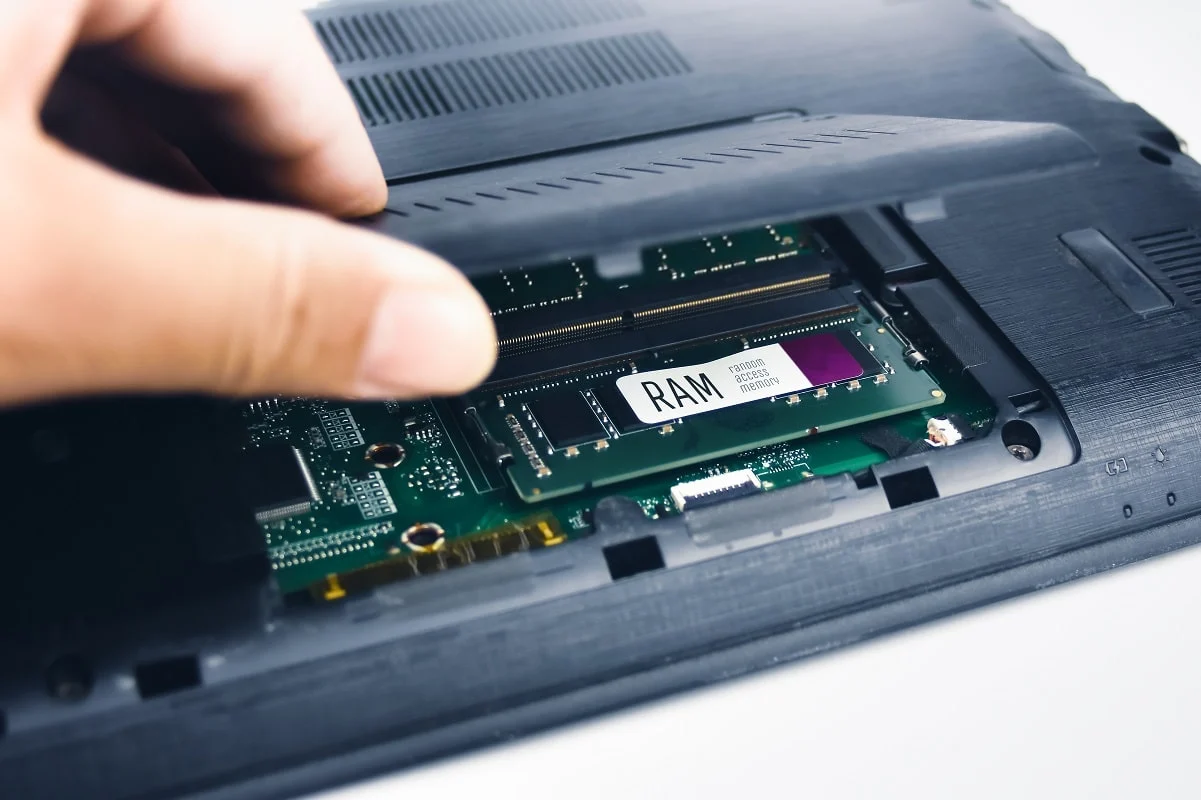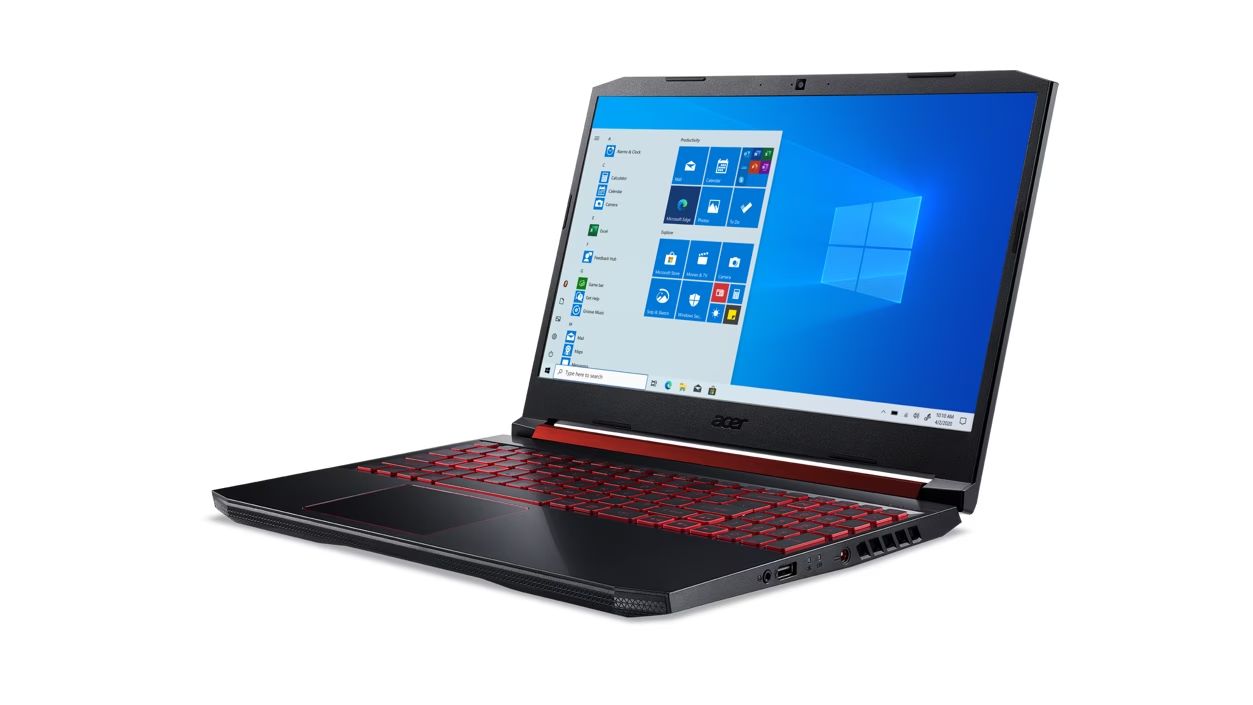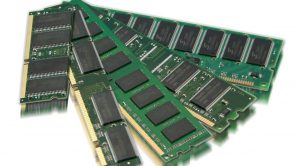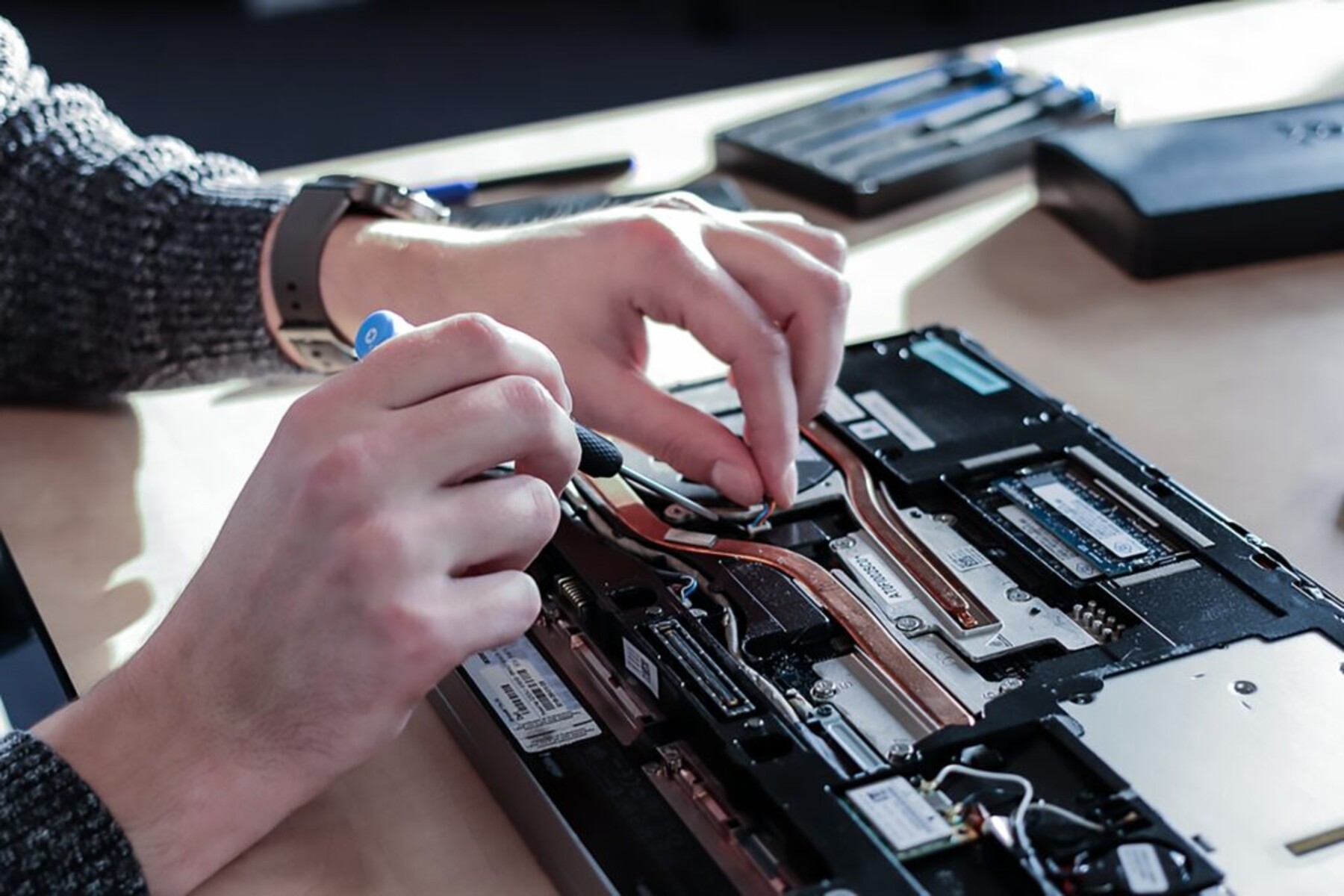Introduction
When it comes to gaming laptops, one of the crucial considerations is the amount of storage space needed. Whether you are a casual gamer or a hardcore enthusiast, having enough storage is essential to accommodate your game library, save files, and any additional software or media. However, determining the right amount of storage can be confusing, as there are various factors to consider.
In this article, we will delve into the different aspects of storage space for gaming laptops and help you understand how much storage you need. We will explore factors such as graphics memory, system memory, and the types of games you play. Additionally, we will discuss the importance of upgradability and how it can affect your storage needs.
Before we dive into the details, it’s important to note that the storage requirements for gaming laptops can vary greatly depending on individual preferences and gaming habits. Some gamers prefer to have a vast collection of games readily available, while others may opt for a more streamlined approach. By understanding the factors that come into play, you can make an informed decision and ensure that your gaming laptop meets your needs both now and in the future.
Graphics Memory
Graphics memory, also known as video memory or VRAM, is an essential component for gaming laptops. It is responsible for storing and quickly accessing data related to graphics processing, such as textures, shaders, and frame buffers. The amount of graphics memory you need depends on factors like the resolution you play at, the complexity of the games you enjoy, and the settings you prefer.
For casual gamers who play less demanding games or at lower resolutions, such as 1080p, a gaming laptop with 4 GB of graphics memory should suffice. This amount of memory allows for smooth gameplay and decent performance in most mainstream games. However, if you are a serious gamer who enjoys playing AAA titles or wants to experience gaming in high resolutions like 2K or 4K, you should aim for a laptop with at least 6 GB or more of graphics memory.
It’s worth noting that the type of graphics memory is also important. The two main types are GDDR5 and GDDR6. GDDR6 memory is the newer and faster option, providing better performance in graphically intensive games. Therefore, if you have the option, look for a gaming laptop with GDDR6 graphics memory.
Another factor to consider is future-proofing. As technology advances, game requirements will increase. Investing in a gaming laptop with more graphics memory than currently needed can help ensure that it will continue to handle demanding games for a longer period. It is recommended to go for the higher end of the spectrum if your budget allows.
System Memory
System memory, also known as RAM (Random Access Memory), plays a crucial role in gaming performance. It is responsible for temporarily storing data that the CPU needs to access quickly, including game assets, textures, and instructions. The amount of system memory you need for a gaming laptop depends on several factors, such as the complexity of the games you play and the operating system requirements.
For most casual gamers, 8 GB of system memory should be sufficient. This amount allows for smooth gameplay in most mainstream games and multitasking without significant performance issues. However, as games become more demanding and resource-intensive, it is increasingly recommended to have 16 GB or even 32 GB of system memory for optimal performance.
Additionally, if you plan on running other resource-intensive applications simultaneously, such as video editing software or streaming software, having a higher amount of system memory can greatly enhance your overall gaming experience. It ensures that your system has enough memory to handle the demands of both gaming and other tasks without experiencing slowdowns or lag.
It’s worth noting that the speed of the system memory, measured in MHz, can also impact gaming performance. Higher memory speeds can improve data transfer rates and reduce latency, which can result in smoother gameplay and faster loading times. However, the difference in performance between memory speeds is generally minimal, so it is not as crucial as having an adequate amount of system memory.
Another consideration is the upgradability of system memory. Some gaming laptops allow for RAM upgrades, while others have the memory soldered onto the motherboard, making it non-upgradeable. It’s generally a good idea to opt for a laptop that allows for memory upgrades, as it provides flexibility for future expansion and the ability to keep up with increasing system requirements.
Storage Space
When it comes to storage space, gaming laptops offer various options, including solid-state drives (SSDs) and hard disk drives (HDDs). The choice between SSD and HDD can significantly impact game load times, overall system performance, and the amount of storage you can have.
SSDs are faster and more efficient than HDDs, providing quicker game load times and improved system responsiveness. They are highly recommended for gaming laptops, as they offer faster access to game files, reducing waiting times between levels or during gameplay. However, SSDs tend to be more expensive and offer lower storage capacities compared to HDDs.
HDDs, on the other hand, are more affordable and offer larger storage capacities, making them suitable for gamers who have extensive game libraries or need ample space for other media files. However, they are slower than SSDs and can suffer from longer load times in games.
For gamers who prioritize speed and performance, opting for an SSD is highly recommended, even if it means compromising on storage capacity. A gaming laptop with at least 256 GB or 512 GB of SSD storage should be sufficient for most gamers, allowing them to install their favorite games and enjoy faster load times.
If you require more storage for a larger game library or media files, you can consider a gaming laptop with dual storage options. This setup often includes a smaller SSD for faster boot times and game loading, paired with a larger HDD for additional storage space.
It’s important to mention that some gaming laptops offer the ability to upgrade or add storage in the future. This can be beneficial if you anticipate your storage needs to increase over time. Check the specifications and options for storage expansion when considering a gaming laptop.
Considerations for Different Types of Games
When determining the storage space needed for a gaming laptop, it’s crucial to consider the types of games you play. Different genres and game sizes can have varying storage requirements. Here are some key considerations:
1. Open-world or Massive Multiplayer Online (MMO) Games: Open-world games and MMOs often feature vast environments, extensive maps, and numerous assets. These types of games tend to have larger file sizes and can require significant storage space. It’s advisable to have ample storage, especially if you enjoy playing multiple titles within this genre.
2. AAA Titles and High-Definition Games: AAA titles and graphically intensive games with high-definition textures can occupy a considerable amount of storage space. These games often exceed 50 GB, and some can even surpass 100 GB. If you’re a fan of visually stunning games, it’s recommended to have a gaming laptop with a larger SSD or a combination of SSD and HDD for adequate storage.
3. eSports and Competitive Games: eSports and competitive games, such as first-person shooters or multiplayer online battle arena (MOBA) games, typically have smaller file sizes compared to open-world or AAA titles. For these types of games, a 256 GB or 512 GB SSD should be sufficient, allowing for quick game load times and enough space for multiple titles.
4. Retro and Indie Games: Retro games and indie titles generally have smaller file sizes, as they often prioritize gameplay mechanics and simplicity over high-definition visuals. These games can typically be installed on a smaller SSD or even a larger HDD without much impact on performance.
It’s important to note that game sizes can vary, and new releases may require more storage space as developers continue to push the boundaries of graphics and gameplay. Keeping track of game sizes and periodically assessing your storage needs can help ensure that you have enough space to accommodate new releases.
The Importance of Upgradability
When considering storage space for a gaming laptop, it’s essential to take into account the importance of upgradability. Gaming habits, file sizes, and storage requirements can change over time, so having the ability to upgrade your storage can be a valuable feature.
Many gaming laptops offer options for storage expansion or have easily accessible slots for adding additional drives. This allows you to start with a smaller storage capacity and upgrade in the future as needed. Upgrading storage is typically a straightforward process and can be done by adding a larger SSD or HDD or even opting for a faster NVMe SSD for improved performance.
With the advancements in game sizes and the increasing demands of newer games, having upgradable storage ensures that your gaming laptop remains relevant and capable of accommodating future releases. It gives you the flexibility to adapt to changing storage needs without having to replace the entire laptop.
In addition to storage, upgradability in other components like graphics memory and system memory is also worth considering. For example, some gaming laptops provide the option to expand system memory, allowing you to increase performance and multitasking capabilities in the future.
By choosing a gaming laptop with upgradable storage and other components, you future-proof your investment and maximize the lifespan of your device. This means you can enjoy the latest games and technology advancements without the need for a complete system overhaul.
However, it’s important to note that not all gaming laptops offer upgradability. Some models have components soldered onto the motherboard, making them non-upgradeable. Before making a purchase, ensure that the gaming laptop you choose aligns with your preferences for upgradability.
Upgradability not only allows you to adapt to future gaming requirements but also provides the opportunity to save money in the long run. Instead of buying a new gaming laptop every time you need more storage or better performance, you can simply upgrade the necessary components, which is often a more cost-effective option.
Conclusion
When it comes to determining the right amount of storage space for a gaming laptop, several factors come into play. The graphics memory, system memory, and storage space requirements can vary based on the types of games you play and your gaming habits.
Having adequate graphics memory, such as 4 GB for casual gamers or 6 GB or more for serious enthusiasts, ensures smooth gameplay and optimal performance in graphically demanding titles. Similarly, having enough system memory, ideally 8 GB or more, allows for efficient multitasking and smoother gaming experiences.
Storage space is another crucial aspect to consider. At a minimum, a gaming laptop with 256 GB or 512 GB of SSD storage provides quick load times and ample space for several games. For gamers with larger game libraries or a preference for open-world and AAA titles, opting for a combination of SSD and HDD or a larger SSD capacity is advisable.
Additionally, the upgradability of storage and other components is essential for flexibility and future-proofing. Investing in a gaming laptop that allows for storage and memory upgrades enables you to adapt to changing storage needs and performance requirements without needing to replace the entire device.
Ultimately, the right amount of storage space for your gaming laptop depends on your specific needs and preferences. By considering factors such as the types of games you play, their file sizes, and the potential for future growth, you can make an informed decision and ensure that your gaming experience is optimized.
So, whether you’re a casual gamer with a small game library or a dedicated enthusiast with an extensive collection, finding the perfect balance of graphics memory, system memory, and storage space will ensure that your gaming laptop meets your needs and provides an immersive and enjoyable gaming experience.









